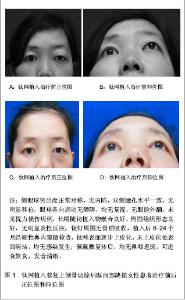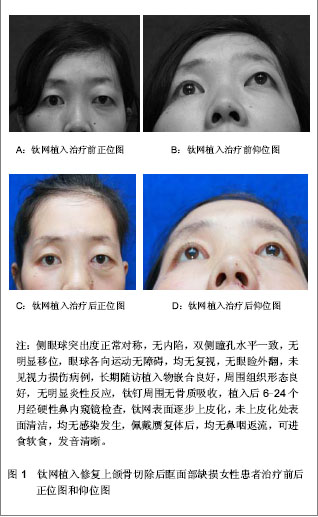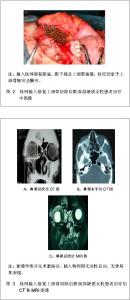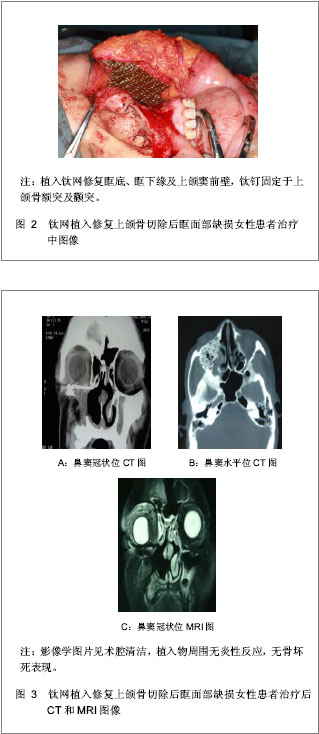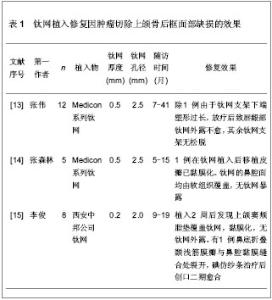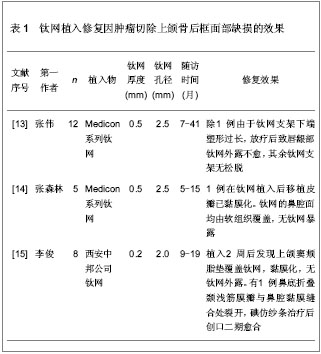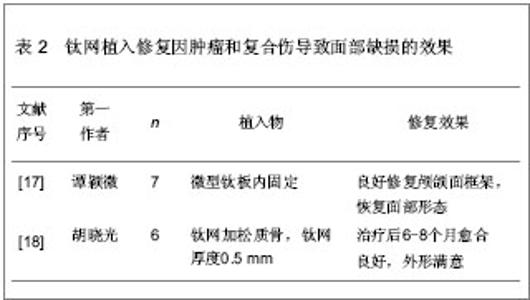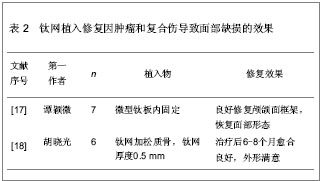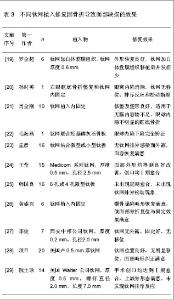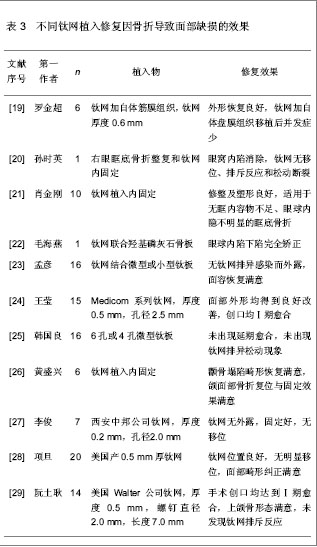| [1] James MS, David UL, Scott PB. The Pediatric Mandible: II. Management of Traumatic Injury or Fracture. Plast Reconstr Surg.2005;116(2):28e-41e.[2] 祁佐良,金羽青,邹丽剑,等.颅颌面骨创伤畸形及骨缺损的临床治疗[J].实用美容整形外科杂志,2003,14(5):244-247.[3] 嘉,姜献峰,吴海平.基于逆向工程与快速成型技术的个体化钛网塑形研究[J].轻工机械,2009,27(6):85-86,90.[4] Karp NS, McCarthy JG, Schreiber JS, et al.Membranous bone lengthening: a serial histological study.Ann Plast Surg.1992; 29(1):2-7.[5] Hashem FK, Al Homsi M, Mahasin ZZ, et al. Laryngotracheoplasty using the Medpor implant: an animal model. J Otolaryngol.2001;30(6):334-339.[6] 胡永杰,张陈平.应用钛网支架重建上颌骨肿瘤切除术后缺损畸形[J].上海口腔医学,2002,11(1):28-31.[7] Hochuli-Vieira E, Cabrini Gabrielli MA, Pereira-Filho VA, et al.Rigid internal fixation with titanium versus bioresorbable miniplates in the repair of mandibular fractures in rabbits.Int J Oral Maxillofac Surg.2005 ;34(2):167-173.[8] Ellis E 3rd, Tan Y.Assessment of internal orbital reconstructions for pure blowout fractures: cranial bone grafts versus titanium mesh.J Oral Maxillofac Surg.2003;61(4): 442-453.[9] Asai S, Kamei Y, Torii S.One-stage reconstruction of infected cranial defects using a titanium mesh plate enclosed in an omental flap.Ann Plast Surg.2004;52(2):144-147.[10] Jung TT, Park SK.Reconstruction of mastoidectomy defect with titanium mesh.Acta Otolaryngol.2004;124(4):440-442.[11] 中国知网.中国学术期刊总库[DB/OL].2013-1-12. https://www.cnki.net[12] 万方数据库.万方数据知识服务平台[DB/OL].2013-1-12. http://www.wanfangdata.com.cn[13] 张伟.改良面中翻径路同期钛网塑形重建全上颌骨切除术后缺损畸形[J].临床耳鼻咽喉头颈外科,2007,21(12):564-565.[14] 张森林,孟昭业,董震,等.游离前臂皮瓣与钛网联合修复上颌骨缺损[J].中国修复重建外科杂志,2004,18(6):459-461.[15] 李俊,廖明华,姚金光,等.上颌骨缺损即刻三维闭合式功能重建[J].右江医学,2004,32(5):428-429.[16] 马宏涛,孙坚,李军.上颌骨三维重建术后患者生存质量的比较[J].口腔颌面外科杂志,2003,13(4):317-319. [17] 谭颖徽,王建华,张纲,等.颅颌面骨缺损的Ⅰ期修复重建[J].重庆医学,2006,35(2):137-139. [18] 胡晓光,杨耀武,李建虎,等.上颌骨缺损修复10例报告[J].临床口腔医学杂志,2004,20(9):562-563. [19] 罗金超,胡敏,陈丽洁.钛网加自体筋膜组织移植修复眼眶底部创伤性缺损[J].创伤外科杂志,2011,13(5):401-402,406. [20] 孙时英,陈炳衡,崔兰,等.微型钛网内固定术治疗眶底骨折1例[J].临床眼科杂志,2010,18(6):572.[21] 肖金刚,刘磊,董海,等.面中部骨折伴发眶底骨折的临床分析[J].华西口腔医学杂志,2007,25(1):67-69.[22] 毛海燕,史贻玉,廖天安,等.钛网联合羟基磷灰石骨板修复眼眶骨折一例[J].眼外伤职业眼病杂志,2007,29(8):646. [23] 孟彦,吴雨雷,南杰,等.钛网在面中部骨折修复中的应用[J].山西职工医学院学报,2006,16(2):7-8.[24] 王莹,方一鸣,朱形好,等.钛网在伴有骨缺损的颌面中部骨折治疗中的应用[J].浙江临床医学,2005,7(8):799-800.[25] 韩国良,李耀峰,蔡世新.眶壁颌面部复合性骨折的早期手术治疗[J].现代口腔医学杂志,2005,19(6):658,617. [26] 黄盛兴,孙海鹏,范海东,等.外伤性眶底骨缺损的重建[J].中华创伤杂志,2005,21(7):524-527. [27] 李俊,姚金光,陈海波,等.上颌骨大型缺损个体化三维闭合性功能重建[J].右江民族医学院学报,2005,27(4):453-456.[28] 项旦.钛网在上颌窦顶壁粉碎性骨折修复术中的应用[J].右江医学,2004,32(6):586.[29] 阮土耿,黄林江,韩翔.钛网在上颌骨缺损修复中的应用[J].口腔医学,2004,24(2):103-104.[30] Brown JS, Rogers SN, McNally DN, et al.A modified classification for the maxillectomy defect.Head Neck.2000; 22(1): 17-26.[31] Nagy EV,Toth J,Kaldi I,et al.Grave’s ophthalmopathy:eye muscle involvement in patients with diiplopia.Eur J Endocrino.2000;142:591-597.[32] 毛驰,俞光岩,郭传瑸,等.应用游离腓骨复合瓣行上颌骨缺损修复的初步研究[J].口腔颌面外科杂志,2001,11(1):11-14.[33] 严君烈,陈关福,刘雁鸣,等.预成钛网结合颊脂垫瓣和自体植骨修复上颌骨缺损[J].中华整形外科杂志,2007,23(6):469-472.[34] 朱兆夫,吴汉江,李运良,等.自体颅骨移植在眶底重建中的应用[J].中华整形外科杂志,2001,17(5):294-296. [35] 黄盛兴,孙海鹏,范海东,等.外伤性眶底骨缺损的重建[J].中华创伤杂志,2005,21(7):523-527. |
